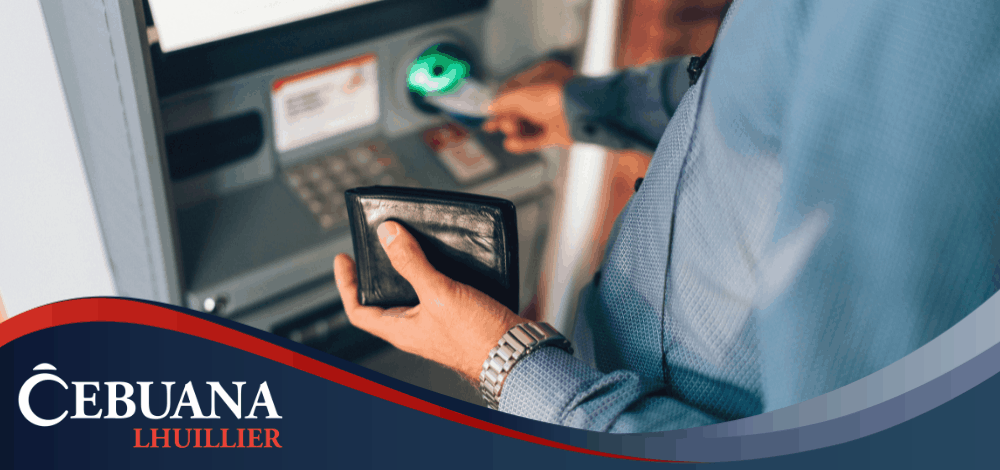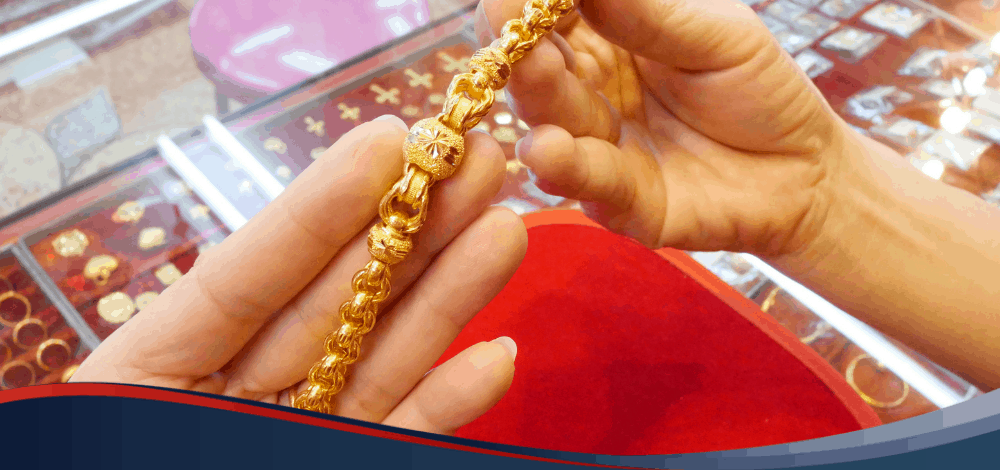Introduction
Whether you are purchasing gifts or settling bills, an online payment system is the most convenient way to complete your transactions. You no longer have to worry about leaving your home or waiting in long lines just to pay a small amount of money.
A lot of businesses have integrated online payment systems into their digital platforms to keep up with the needs of their customers. Several of the companies that provide this service also allow you to use their systems from any device, which makes it easily accessible for most people.
Online Bills Payment Philippines
-
What is an Online Bills Payment?
Money that is traded electronically is referred to as an online transaction. Computer networks, the Internet, and digital stored value systems are often used for this process. Today, most transactions are paid online: food deliveries, tuition payments, utility bills, loans, rent, credit card fees, and so on.
-
Why Do We Have to Pay Online in the Philippines?
Nowadays, online bills payments systems are available in the Philippines for convenience. From the comfort of your home, you could pay for any item and service without being physically present elsewhere. In comparison to traditional payment setups, online payments can be accomplished wherever you are.
When you pay online, you can review your account balance to see if your bill payment has been scheduled or if you have been charged. Other advantages include the ability to check for individual payments online, view online payment history, and set up email notifications to keep you informed about upcoming payments.
We live in a world where technology has helped humans in various ways. Instead of getting stuck on the traditional setup, humans have created systems that simplify everyday processes. Thankfully, we have Cebuana Lhuillier as a financial services provider for pawning, remittance, microinsurance, and micro savings.
Bills Payment Philippines
-
Bills Payment Options In The Philippines
-
Malls/utility company’s offices
These days, Filipinos can pay through bills payment centers like malls or utility company outlets . In fact, a bills payment counter can be found in almost every mall in the Philippines.
-
Online Payment
The Philippines has one of the lowest card penetration rates globally. Most online transactions are made using alternative online payment methods. In fact, you can pay your bills online in two ways: through your bank’s online platform or third-party mobile apps, such as digital wallets.
Online Bank Transfer
The majority of eCommerce transactions (estimated at 30-70 percent depending on industry and vertical) are made with cash-on-delivery and online bank transfers. The Philippine market is notable for its low level of credit card use and rapid growth in mobile as a payment platform.
In the Philippines, banks such as Banco De Oro (BDO), Metrobank, Bank of the Philippine Islands (BPI), Rizal Commercial Banking Corp (RCBC), and others accept this payment method. Payments can be made through the shopper’s own online banking website.
Mobile apps
Online merchants use alternative online payment systems to enable customers to make purchases online. Internet use in the Philippines is rising at one of the highest rates in the world, with 70 percent of Internet users being between the ages of 15 and 34. Consumers around the country have been in the house for months, doing much of their shopping online—and the pattern shows no signs of slowing down.
Touching a credit card reader isn’t sanitary, and cash is so last century. By using mobile payment apps, you can easily send payments using your smartphone. These systems are perfect for small transactions, such as online orders and daily purchases.
Furthermore, mobile payment apps can help mitigate the risk of carrying cash, which can be lost or stolen. Paying with your digital wallet is also simpler and quicker than swiping or inserting a credit or debit card.
Many retailers accept mobile payments, and the number of stores accepting this technology is growing every day. Online bills payment systems make it easier for you to keep track of everything because all transaction information is in one location. You can quickly tell whether anything is written wrong or whether you have made a payment.
- What is the best way to pay bills online?
Cebuana Lhuillier provides a convenient bills payment option. All transactions are online and completed quickly and safely. Large telecommunication networks, insurance providers, online enterprises, and schools are among our existing partners.
- Is there an app to pay all bills at once?
Yes, there are apps that allow you to pay all bills at once. Applications, such as GCash, GrabPay, PayMaya, Coins.PH, BanKO, and PayPal, help Filipinos minimize stress and accomplish all payments at once. These apps are used to pay bills, make QR transactions, book movies, as well as send and receive money. Make sure you’re using the right mobile app. Check the name on the bank’s website or click on the link they provided.
Paying your bills on time is a difficult but necessary errand. If you don’t, you risk falling behind on your dues, which can put you in debt, damage your reputation, and even prevent you from buying the things you’ve been aiming for.
Online Payment Philippines
Customers can pay for goods and services through a website using online payments. Here are some of the most important benefits of using online bills payments in the Philippines.
- Low Labor Costs
Because online payments are typically automated, they have lower labor costs than manual methods such as checks, money orders, cash, and EFTPOS.
- Convenience for Online Sales
Online payment methods make it easy to digitally sell and pay for goods and services.
- Automatic Setup
Online payments can be set up to be automatic, which allows you to not miss a due date or make simple errors during the transaction.
- Quick Transaction Speed
Online transactions provide you and your customers with immediate feedback.
- Security From Theft
Online payments are usually encrypted, and they go directly into your bank account, so they pose little risk of theft.
- Time-Saving Possibilities
Paying with a card, mobile wallet, or wearable device is almost always faster than paying with cash. Customers save time by simply swiping or tapping to pay. There’s no need to rummage through wallets or purses for coins, as the exact amount could automatically be deducted from your account balance.
- Payment Assurance
When you process an electronic transaction and your terminal approves it, you can be confident that the payment will appear in your account very soon. Unlike cash, which requires you to transport and deposit it at the bank, no time-consuming extra step is required.
- No Extra Costs
If you already accept chip and PIN payments, you do not have to worry about any additional fees when you start accepting contactless payments. You simply need to pay the same amount as you would for a standard credit card transaction. There are numerous packages available to accommodate businesses of all sizes, budgets, and transaction volumes.
Electronic payments, as well as the benefits they provide, are only one aspect of a well-functioning payment infrastructure. If you want to learn more, contact Cebuana Lhuillier for details and inquiries.
Cebuana Lhuillier
The PJ Lhuillier Group of Companies (PJLGC), founded in 1988, is a dynamic and multi-industry company. We own and operates businesses that provide financial services such as pawning, remittance, microinsurance, micro savings, and business-to-business micro loan solutions.
Over the years, we have grown to become one of the country’s most powerful financial services companies. Since opening our first Agencia Cebuana in Cebu, we have made significant strides toward our goal of becoming the best.
In addition to pawning, money transfer, insurance, and banking, Cebuana Lhuillier provides other services to meet the needs of our customers. Foreign exchange and business-to-business transactions such as bill payment, e-load, and corporate payout are available in some of our branches.
You can expect to have a decent and effective online bills payment with us. Please approach our friendly branch personnel or contact our Customer Care Unit at the following contact details from 9:00 am to 6:00 pm (Monday – Sunday) for inquiries, comments, and/or suggestions.
Inquire via Facebook at cebuanalhuillierpawnshop
Inquire via email at [email protected]
SMS
Inquire via text message:
GLOBE 0917-8122737
SMART 0918-8122737
VIBER 0917-8122737
*Text only. No voice calls.
CALL
Phone in your inquiry
(02) 8779-9800 (PLDT)
(02) 7759-9800 (Globelines)
List of Bills Payment Partners
Our branches at Cebuana Lhuillier also serve as bills payment locations. We conduct all transactions online, and we complete them in a timely and secure manner. Its current partners include major telecommunications networks, insurance companies, online businesses, and educational institutions.
List of Bills Payment Partners:
Globe/Globelines/GQuest
PLDT
Smart/SmartBro
Smart Marino
Sun Cellular
Wi-Tribe
Cignal
Converge ICT Solutions Inc.
G-Sat (Globe Satellite)
Angeles City Cable Television Network (ACCTN)
Central Luzon Cable Television Network (CLCTN)
BPI Credit Cards
LOAN PAYMENTS
123 Lending Corporation
Aeon Credit Service
Asialink Finance Corporation
Finaswide Credit Corp.
Global Dominion Financing, Inc.
Grolier International Finance Inc.
Home Credit
Makati Finance
Mentors Philippines
Metrobank Credit Card
Metro Quicash Lending Corp.
Monielend Corporation
Sumisho Motor Finance Corp.
South Asialink Credit Corp.
Unionbank Loans
Microfinance Maximum Savings Bank, Inc. (Maxbank)
Easy pay Finance Corporation
RCollect
Country Funders and Lending Investors Corp.
123 Finance
INSURANCE
APEC Plans
Cocolife (UCPB)
Manulife Financial Plans
Manulife Philippines
Sunlife of Canada (Philippines) Inc.
Allianz PNB Life Insurance Inc
AIRLINES
Air Asia Zest
Skyjet Airlines
Cebu Pacific Air
Philippine Airlines
Tiger Airways
UTILITIES
Benguet Electric Cooperative Inc. (BENECO)
BP Waterworks, Inc.
E-Prime
Goodhands Water Specialists, Inc.
Happywell Mgt. and Collection Sevices, Inc.
Meralco
Kuryente Load (Meralco)
Manila Water
Maynilad
Benguet Electric Cooperative Inc. (BENECO)
E-Prime
NEECO II Area 1 (Nueva Ecija II Electric Cooperative, Inc. Area 1)
NEECO 2 Area 2 (Nueva Ecija 2 Electric Cooperative, Inc. Area 2)
OEDC (Olongapo Electricity Distribution Company)
Subic Enerzone Corporation
Subic Water
Zambales I Electric Cooperative, Inc. (ZAMECO 1)
Zambales II Electric Cooperative, Inc. (ZAMECO 2)
Batangas II Electric Cooperative (BATELEC 2)
BOHECO 1 (Bohol I Electric Cooperative, Inc.)
BOHECO 2 (Bohol II Electric Cooperative)
Consolacion Water Systems Inc.
Helpmate, Inc.
Samar II Electric Cooperative, Inc. (SAMELCO 2)
Visayan Electric Company (VECO)
Iloilo I Electric Cooperative (ILECO 1)
Cotabato Light & Power Company
Davao Light & Power Company
Davao Oriental Electric Cooperative Inc. (Doreco)
Davao Del Sur Electric Cooperative Inc. (DASURECO)
CABLE/SATELLITE TV
Cignal
BP Waterworks, Inc.
G-Sat (Globe Satellite)
Sky Cable Prepaid
Angeles City Cable Television Network (ACCTN)
Central Luzon Cable Television Network (CLCTN)
SCHOOLS
Lorma Colleges, Inc
Inspire Leadership Consultancy
Asian College
Jose Rizal University
Ateneo De Davao University
Mapua Institute of Technology
Davao Doctors College Inc.
University of Mindanao
Technological Institute of the Philippines (Manila)
Technological Institute of the Philippines (QC)
ICCT Colleges
FOUNDATIONS
Alagang Kapatid TV5
Caritas Manila
Children’s Hour
GMA Kapuso Foundation
Philippine Red Cross
World Vision
Cebuana Lhuillier Foundation, Inc.
Alagang Kapatid TV5
Philippine Red Cross
INTERNET GROUP BUYING SITES/ONLINE STORES
DragonPay Corporation
EZ Shop
Kimstore
Marikina Shoe Exchange
Natasha
OLX (formerly Sulit.com)
Lazada
Skybridge Payment, Inc.
Forever Living Products Philippines, Inc.
GOVERNMENT
DFA thru Multipay
NBI
Maritime Industry Authority (MARINA) thru Multipay
SSS – PRN
SSS – BRN
PAGIBIG
Philhealth
JEWELRY
Just Jewels
TELCOS
ABS-CBN Mobile
Globe/Globelines/GQuest
GCash
PLDT
Smart/SmartBro
Smart Marino
Sun Cellular
OTHERS
Bellavita Land
BuyBit
Coins.ph
Ever Bilena Cosmetics Inc.
JC Worldwide Franchise Inc.
Le Soleil de Boracay
Level Up
Probikes Motorcycle Center
RLC – Robinsons Home
Phiten
SuySing
VMoney
Philsmile Inc.
Unified Tennis Association
Tanay Rural Bank
Automobile Association of the Phils Inc.
Sme Banking Solutions
Paynamics Technologies Inc.
Cash Credit
RLC – Residential
Action.Able Inc.
MSS Cycle Monthly Installment
E-load
Cebuana Lhuillier is an accessible loading station for prepaid internet and mobile phone users subscribed to major telecommunication networks.
List of E-Load partners:
Cignal
Globe/Globelines/GQuest
PLDT
Red Mobile
Smart
Smart Broadband
Sun
Touch Mobile
Level Up!
Wi-tribe
Marino Textmate/Phonepal
GSAT – Global Satellite
Frequently Asked Questions about Online Bills Payment
- What is the most efficient way to pay bills online?
Electronic bills payment not only eliminates the need for postage, but it also simplifies the process. It also helps end users to avoid costly mistakes. Because no one wants to pay extra to manage their bills online, it’s useful to understand the best ways to pay your bills online for free and how to set these services up.
The online platforms for your bank or credit account are most likely the best ways to pay bills online. If you have a checking account, your financial institution most likely provides this feature for free.
- How to pay bills when you don’t have a bank account?
There are many alternatives for bills payment if you don’t have a bank or checking account. Your primary options are check cashiers, money orders, and prepaid debit cards.
- Do online payments go through right away?
If you pay by credit card online or by phone, it takes one to three business days for the payment to be posted. Payments sent through the mail will take a few days longer. If your credit card is linked to your checking account and the same bank holds both accounts, your payment may be posted immediately after the transaction.
- How long does it take for an online payment to be processed?
On a business day and during business hours, electronic payments made online or by phone will be posted to your credit card account faster than a mailed check. You don’t have to wait for the mail to reach your credit card company when you use electronic payments.
Conclusion
Banks and other large corporations use encryption and other technologies to protect their customers’ personal and financial information. Generally, paying bills online is one of the safest and most convenient ways to ensure that you never miss a due date without worrying about physical transactions.












